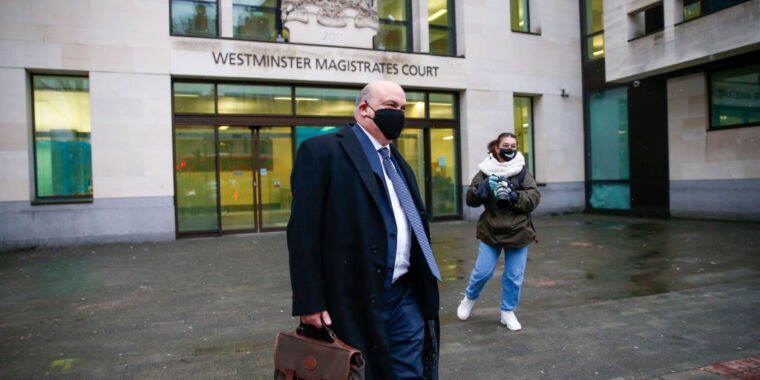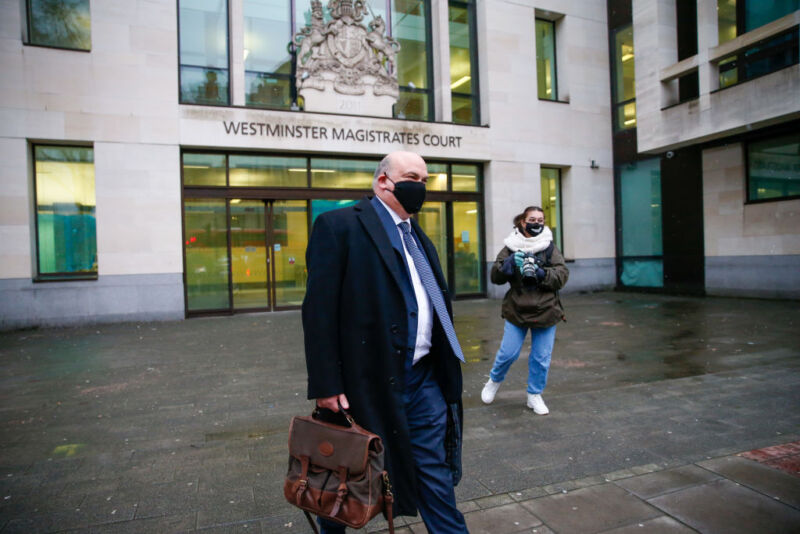

HP won its civil fraud case against Mike Lynch. The biggest civil fraud trial in UK history took place just hours before the home secretary approved Lynch's extradited to the United States.
The UK’s High Court found that HP had “substantially succeeded” in proving that Autonomy executives had fraudulently boosted the firm’s reported revenue, earnings, and value. HP paid $11 billion for the firm back in 2011 and later announced a $8.8 billion write-down of its value. In court, HP claimed damages of $5 billion, but the judge said the total amount due would be “considerably less” and announced at a later date. Kelwin Nicholls, Lynch’s lawyer and a partner at law firm Clifford Chance, said his client intends to appeal the High Court ruling. In a later statement, Nicholls said his client would also appeal the extradition order in the UK’s High Court.The US Embassy in London submitted a request for Lynch to face trial in the United States on 17 counts, including wire fraud, conspiracy, and securities fraud, in November. Lynch is denying all charges. The professor in financial crime at the University of the West of England describes it as an all-pervasive and powerful move. The ramifications for Mr. Lynch are significant.
According to claims subsequently made in court, HP's then chairman said he had serious cold feet about the deal. The company claimed that some former members of the management team used accounting improprieties, misrepresentations, and disclosure failures to inflate the underlying financial metrics of Autonomy.
In 2015, HP filed a lawsuit in the UK against Lynch, accusing him of being involved in the publication of false accounts that overstated how valuable Autonomy's business was. The civil case in the UK is complicated by a parallel case involving the United States Department of Justice, which could have ramifications. In a related trial, his former colleague at Autonomy, chief financial officer Sushovan Hussain, was found guilty of fraud in a US court and was sentenced to five years in prison.
In July of 2021, a London court ruled that Lynch could be extradited, with the judge saying that the UK civil case would have very limited relevance to the US case. The person being tried in the UK for crimes similar to those of Patel has not yet been extradited. Lynch could be facing a significant amount of time in prison if convicted of the 17 counts of fraud.
The case highlights a curiosity in parallel, twin-track legal proceedings. The company used the courts in the UK. The US Department of Justice wants to prosecute Lynch in the United States.
Legal experts have called Lynch's situation unprecedented. Having signed the document, she has seemingly affirmed that US legal proceedings take precedence over a UK case. Her decision is a reminder that the UK and the US have a problem with each other. US prosecutors could use the terms of the 2003 treaty signed between the US and UK to extradite British citizens for alleged offenses under US law, but not the other way around. Richard Cannon, a partner at Stokoe Partnership Solicitors who specializes in criminal defense and civil litigation, says that not everyone agrees with that point of view.
The case is being watched carefully because of the huge numbers involved and the implications for the UK tech and business community. The worry is that the Lynch case could create a precedent around the importance of one legal system over the other.
The story was originally on wired.com.